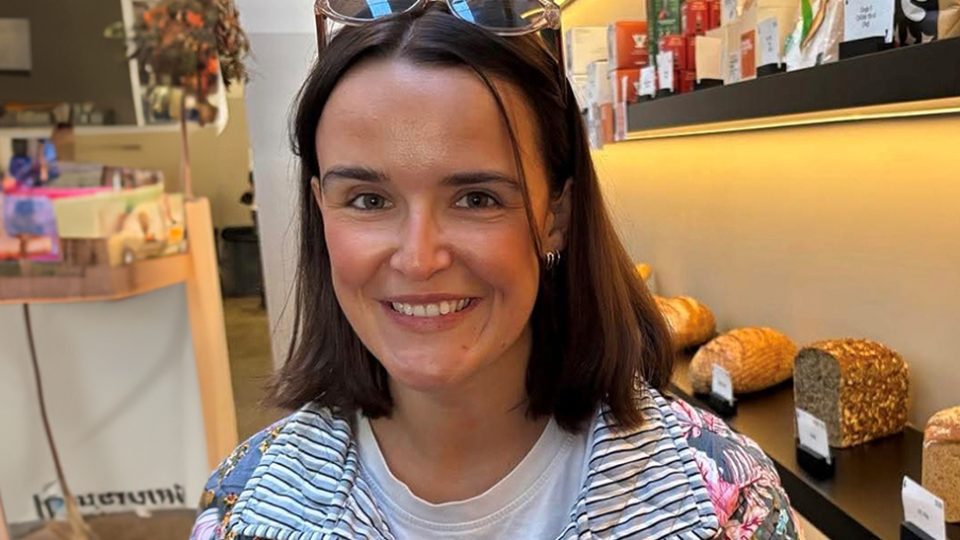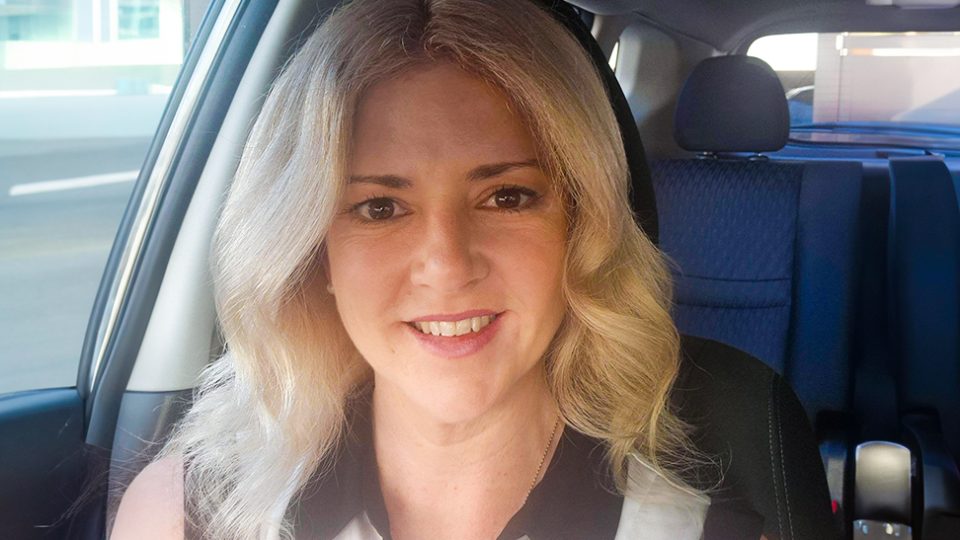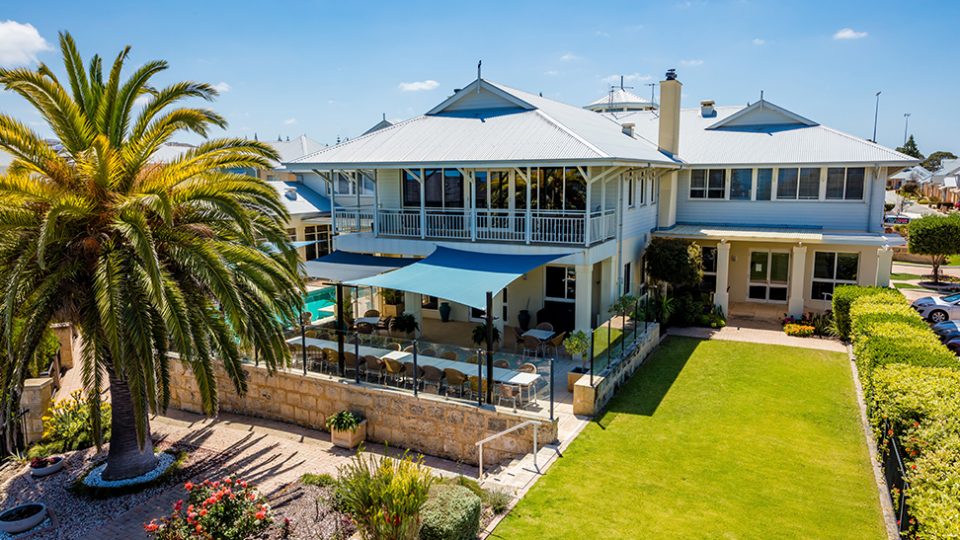How Baptcare supports children in need
- 24 Oct 2023

Baptcare is a leading provider of integrated support services to children, families and young people in Victoria and Tasmania. We believe that every child deserves a safe, nurturing and loving environment where they can thrive and reach their full potential. Baptcare is proud to offer a range of programs designed to prevent harm, promote wellbeing and build parenting skills.
Some of the services that Baptcare provides to support children and their families in Victoria include:
Integrated Family Services Program
This program offers in-home support to families in the Brimbank and Moonee Valley areas, with children between 0-18 years of age. If you or someone you know is struggling with:
- parenting skills
- financial hardship
- mental health issues
- relationship issues
- social isolation
then our Integrated Family Services Program may be able to assist you.
The program helps families with parenting skills development and support, advice and referral to other services in your area and support groups. To make a referral to our Victorian Integrated Family Services Program, please contact the Brimbank Melton Orange Door on 1800 271 046 or the Western Melbourne Orange Door on 1800 271 045. This program is also available in Tasmania – click here for details.
Parenting Assessment Skills Development Service
This service supports families with children up to three years of age and who are currently clients of the Victorian Child Protection Service, Department of Families, Fairness and Housing. The program assesses whether children aged 0-3 are growing up in a safe environment, along with parenting capacity and competency. This service includes an element of education and skill development for parents. Read more about our Parenting Assessment Skills Development Service initiative here.
Home-Start Program
This program provides practical support and mentoring from volunteers to families with children under the age of five in the Bendigo, Macedon Ranges, Brimbank-Melton or Western Melbourne areas. The program helps families to build confidence, connect with their community and access other supporting services. Read more about Home-Start here.
Family Preservation and Reunification Response Program
This program is funded by the Victorian Department of Families, Fairness and Housing to support families involved with Child Protection:
- keep children safely at home
- prevent children and young people entering care services
- and support children and young people to safely reunify with their family after a period of separation.
The service works with families in the Western Melbourne and Brimbank/Melton areas of Melbourne to create a safe and stable environment for children. Read more about this program here.
Parenting and Children’s Groups
These are evidence-based, accredited groups helping parents and their children to enhance their communication, bonding, resilience and coping skills. The groups cover topics such as positive parenting, managing emotions, dealing with trauma and building self-esteem. Groups, including supported playgroups, are currently available in the Bendigo area. For more information, please call us on (03) 9373 3800 or email VicFamilyCommunityServices@baptcare.org.au
Family Violence Program + WAVES
This is a therapeutic service for people who have experienced or witnessed family violence. The service provides counselling, advocacy, referral and support to help people recover from the impact of violence and abuse on their physical, emotional and mental health. The program is available to single adults, families and children who are living or studying in the Brimbank, Melton and western metropolitan areas of Melbourne. Read more about these programs here.
In Tasmania, Baptcare provides a range of family services programs, including:
Strong Families, Safe Kids Advice & Referral Line
The Strong Families, Safe Kids Advice & Referral Line is the first point of contact for anyone with a concern about the safety and wellbeing of a child or who is in need of support. The Advice & Referral Line provides advice to the caller, information about referral pathways and support options for responding to the needs of children and families.
Contact the Strong Families, Safe Kids Advice & Referral Line on 1800 000 123 (state-wide, Tasmania) between 8.30am and 5:00pm, Monday to Friday.
Targeted Youth Support Service
Baptcare’s Targeted Youth Support Service (TYSS) homeless youth program works with young people aged 10 to 18 years who are identified as having significant and/or multiple risk issues including experiencing or being at risk of homelessness.
Participants are identified as requiring significant assistance and, without intensive support, notification to Child Protection or entry to and/or escalation within the youth justice system is likely.
This is a therapeutic intervention program aimed to provide support and casework services for at risk young people. The service also aims to re-engage young people in education, training, employment and housing.
TYSS can be accessed by families who are referred via Strong Families, Safe Kids on 1800 000 123.
Community Kinship Program
Community Kinship care is where children or young people are placed with a family member, friend of the family or someone in the young person’s community when they are unable to stay at home with their parents without the intervention of Child Safety Services.
Community Kinship Practitioners provide support to kinship placements, and partner with Mission Australia to ensure a consistent service for carers across the state.
We can provide assistance to establish a placement, referrals to other services, source respite and broker support as needed.
Foster Care and Kinship Care
Baptcare Foster and Kinship Carers help create a secure and loving environment for a foster child by taking day to day responsibility for their care. As part of a cooperative team (with the child’s family, other services and Baptcare foster care worker) foster carers focus on the best outcomes for the child, aiming to return them to their own families where safe to do so.
Baptcare also provides support for Kinship Carers who have assessments pending and existing carers who would like an alternative support service other than the Department of Education, Children and Young People. If you are interested in the services Baptcare could offer, please discuss this with your Out of Home Care worker or reach out to our team.
Baptcare Foster Carers provide respite care across short periods when a child’s primary carer needs a break, emergency care and short- or longer-term care.
To learn more about our Foster Care and Kinship Care programs in Tasmania, click here. Foster Care services are also available in the Western Melbourne suburbs of Victoria – click here for more details.
Other services for children
Baptcare also provides disability support, affordable housing and asylum seeker assistance for families and children in need. Baptcare is committed to delivering high-quality, person-centred and holistic services that respect the dignity, rights and diversity of every child. A Child Safety Officer and associated working group has been established to oversee our child safe strategies.
If you would like more information about Baptcare’s services for children, please contact us on 13 22 78 or enquire online here.
Community news
-

Staff Spotlight: Annabelle Hancock
Meet Annabelle Hancock, Statewide Carer Support Liaison Officer for the Foster and Kinship care team based in Tasmania.
- 06 Jan 2026
-

Staff spotlight: Alicia Johnston
We are very proud of our talented and dynamic workforce and enjoy following their professional work journeys. Roles aren’t static at Baptcare. There is flexibility to grow and develop into different areas, such as Alicia Johnston’s experience.
- 06 Jan 2026
-

BaptistCare to acquire Keyton’s Western Australian retirement village portfolio
BaptistCare is pleased to announce that we have entered into an agreement to acquire Keyton’s portfolio of retirement villages in WA.
- 13 Nov 2025
